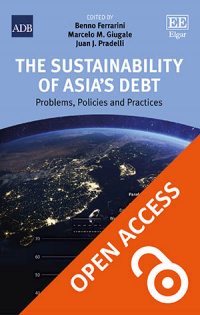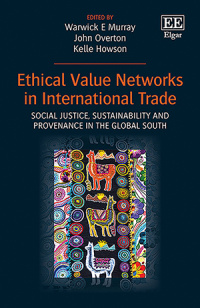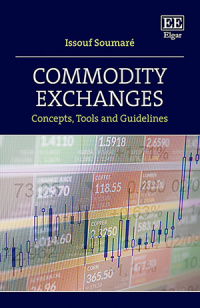Hardback
全球发展和减贫
国际机构的挑战
9781845422486 爱德华伊利加出版社
At the beginning of the third millennium, underdevelopment and poverty continue to remain critical problems on a global scale. The purpose of this volume is to explore the various ways in which the institutions of the global economy might rise to the challenges posed by the twin goals of increasing the pace of global development and alleviating poverty.
More Information
备受好评
Contributors
Contents
More Information
At the beginning of the third millennium, underdevelopment and poverty continue to remain critical problems on a global scale. The purpose of this volume is to explore the various ways in which the institutions of the global economy might rise to the challenges posed by the twin goals of increasing the pace of global development and alleviating poverty.
The expert authors provide a much-needed analysis of the successes and failures of international institutions in achieving these aims, while at the same time providing important insights into the potential future paths that they might follow. Amongst other themes, the contributors investigate the design of international institutions for raising the standard of living in the developing world in order to achieve global development and stability. They also study particular institutions such as the IMF and the WTO to assess their effect on the growth performance of developing nations. In additional chapters, the authors study institutions and regional issues such as privatization and poverty in Russia, the Asian Financial Crisis and the role of the IMF, and the development crisis in sub-Saharan Africa.
This book offers a rigorous examination and informed discussion of the potential role of international institutions in the quest to alleviate poverty. Academics and professionals working in the fields of development studies, international economics and business management will welcome this stimulating book. It will also appeal to decision-makers involved in the formulation of trade, monetary and development policy.
The expert authors provide a much-needed analysis of the successes and failures of international institutions in achieving these aims, while at the same time providing important insights into the potential future paths that they might follow. Amongst other themes, the contributors investigate the design of international institutions for raising the standard of living in the developing world in order to achieve global development and stability. They also study particular institutions such as the IMF and the WTO to assess their effect on the growth performance of developing nations. In additional chapters, the authors study institutions and regional issues such as privatization and poverty in Russia, the Asian Financial Crisis and the role of the IMF, and the development crisis in sub-Saharan Africa.
This book offers a rigorous examination and informed discussion of the potential role of international institutions in the quest to alleviate poverty. Academics and professionals working in the fields of development studies, international economics and business management will welcome this stimulating book. It will also appeal to decision-makers involved in the formulation of trade, monetary and development policy.
备受好评
'。。。本书的出版物与不仅在全球机构的兴趣时及时以及对发展中国家贫困的解决方案的及时而相关。“
– C.W. Morgan, Progress in Development Studies
– C.W. Morgan, Progress in Development Studies
Contributors
Contributors: S.M. Ahsan, V.N. Balasubramanyam, J.-r. Chen, T.C. Daquila, M. Dragicevic, A. Exenberger, K.S. Kim, S. Lall, K. Liebscher, H. Mihci, S. Mihci, M. Nica, S. Pfaffenzeller, K. Raffer, D. Sapsford, K. Socher, A. Wenig
Contents
内容:序言介绍卡尔苏克斯第一部分:一般问题:国际机构和贫困1.国际机构在发展中国家的经济发展和减贫方面的作用2.设计国际机构在提高生活水平方面的作用发展中国家3.全球发展与稳定:国际机构的挑战4.全球发展和工业化5.国际机构和全球不等式:理论能力和实证失败6.国际货币基金组织贷款和自由对发展中国家的增长绩效的影响二:特定国际机构和贫困7.世贸组织会员资格:它对增长和贫困做了什么?8.多边债务管理和穷人9.国际机构和政府在发展中的作用:克罗地亚(由于转型路径的后果贫困和不平等)第三部分:国际机构和区域问题10.机构,整合欧洲和前苏联(EEFSU)11的贫困11.私有化和贫困:俄罗斯的案例12. 1997/98东南亚经济危机:政策回应和国际货币基金组织的作用13.亚的发展危机撒哈拉以南非洲:全球化,调整和国际机构指数的角色




